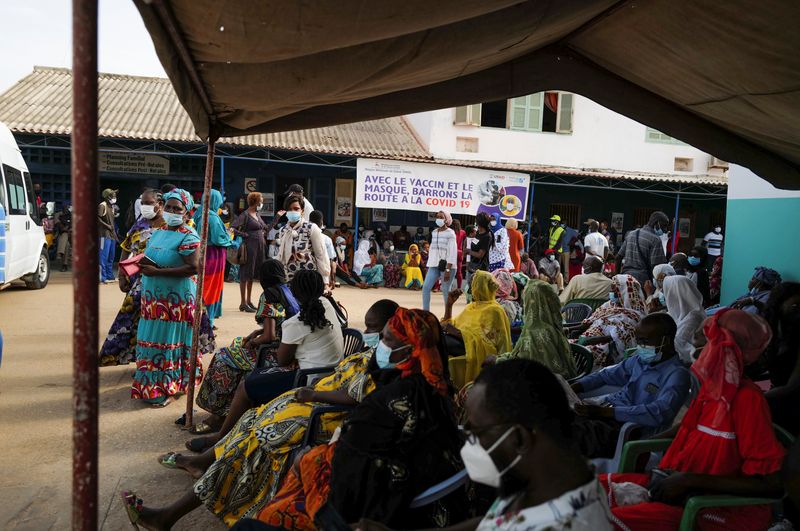By Nellie Peyton
DAKAR (Reuters) - U.N. Secretary-General Antonio Guterres on Sunday urged debt relief for African countries and more investment to help their economies recover from the COVID-19 pandemic and weather the impacts of the Ukraine war.
The United Nations chief spoke in Senegal on the first leg of a trip that will also include Niger and Nigeria, where he will visit communities affected by conflict and climate change.
Supply disruptions due to Russia's invasion of Ukraine have caused simultaneous food, energy and finance crises in Africa and beyond, Guterres said.
The coronavirus pandemic pushed many poor countries into debt distress and the Ukraine war has disrupted their economic recovery, according to the International Monetary Fund (IMF). Public debt ratios in sub-Saharan Africa are at their highest in more than two decades, the IMF said last week.
"International financial institutions must urgently put in place debt relief measures by increasing liquidity and fiscal space, so that governments can avoid default and invest in social safety nets and sustainable development," Guterres said.
The United Nations has made proposals to the World Bank and the IMF regarding the mobilization of various funds and debt relief instruments, but so far the measures taken have been insufficient, he added.
He called on wealthy countries and pharmaceutical companies to accelerate donations of COVID-19 vaccines and invest in local vaccine production, with almost 80% of the African population still not vaccinated against COVID-19.
"Beyond vaccination, we see big imbalances when it comes to investments in post-COVID recovery," he said, adding that economic growth per capita is projected to be 75% lower in Africa than in the rest of the world over the next five years.

Guterres said he visited a vaccine manufacturing unit in Dakar with Senegal's president Macky Sall which will soon be equipped to produce vaccines against COVID-19 and other diseases.
An executive at South Africa's Aspen Pharmacare (OTC:APNHY) told Reuters earlier, however, that Africa's first COVID-19 vaccination plant, touted as a trailblazer last year, now risks shutting down after receiving not a single order.